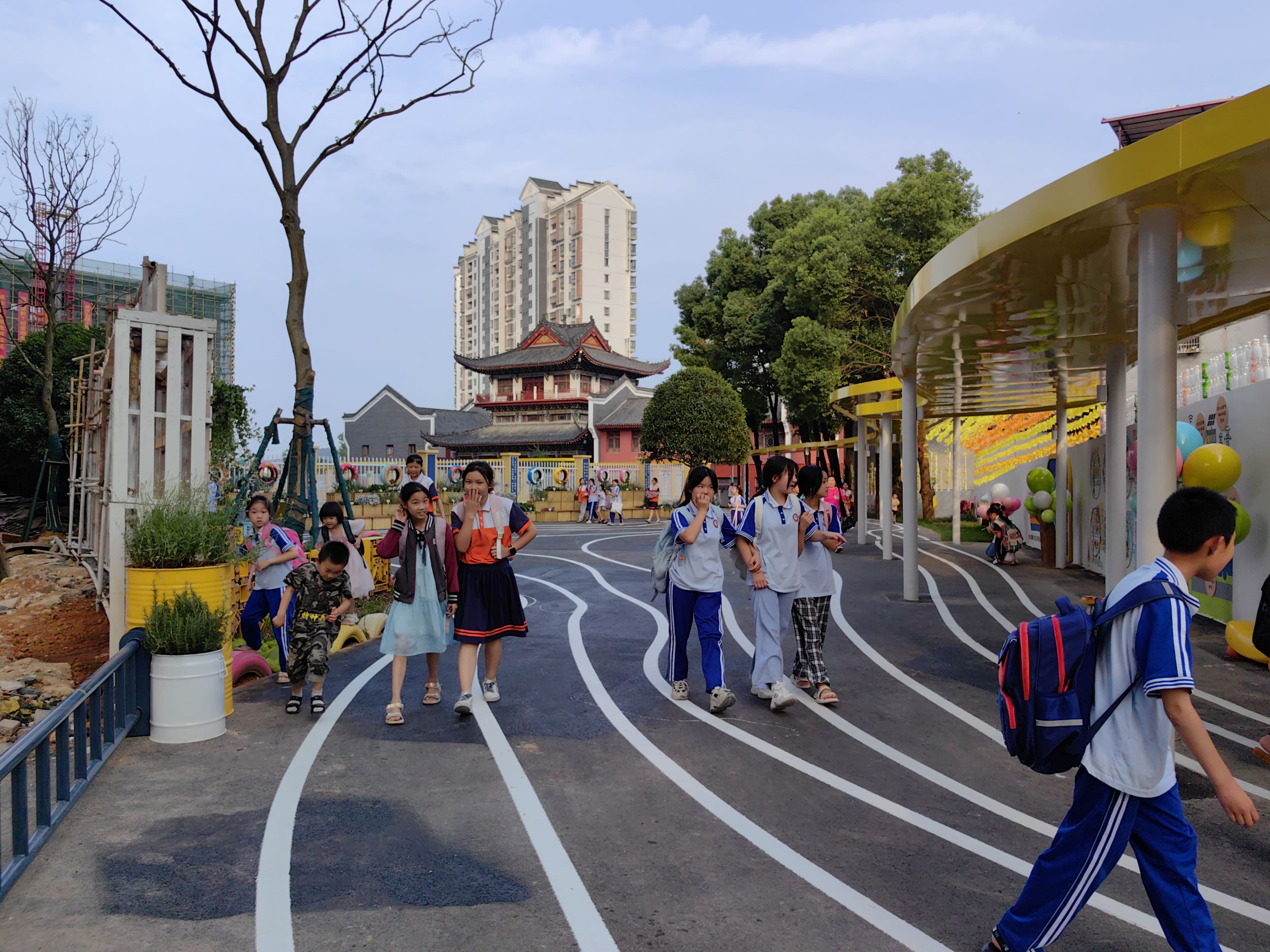Xianning, China
Enhancing traffic safety near schools through a child-friendly collaborative construction and sharing approach

Basic Data
Population size: 3,036,100
Population Growth Rate(%): 0.77
Surface Area (sq.km):9.752
Population Density (people/sq.km):268
GDP Per Capita(U.S.S):8,590
GINI Index:0.46
Main Source of Prosperity: Agriculture, tourism, and Public Health related services
In the Chinese city of Xianning, inadequate municipal utilities used to cause problems such as the coexistence of people and vehicles in the same way, muddy roads on rainy days, and the lack of traffic lights. In order to address these problems that hinder children from getting to and from school safely, Xianning has put forward an effective and efficient "government + enterprise + community" cooperation program. It also represents a holistic approach that promotes not only the infrastructure construction, but also the participation and involvement of active stakeholders at the local level.
The project was spearheaded by the Xianning city government, and broke down departmental divisions by involving seven municipal departments, design institutes, schools, communities, and relevant companies. Through measures such as using franchise model, adjusting land use, separating pedestrian and vehicles, introducing walking-bus routes, and establishing various waiting areas, the initiative successfully transformed the streets around the school into safe and high-quality shared community spaces and co-built garden.In addition, a series of social practice activities intended for students have been organized for the improvement of the surrounding environment of school, so as to build the ideal campus and safe roads for children.
Since the initiative started, the proportion of students walking to school has increased from 30% to 95%. 100 parent volunteers operates four designated walking routes to school, resulting in a significant reduction in the number of nearby traffic accidents from over 50 to just one. This innovation has been rapidly extended to 20 schools, generating substantial social impact both domestically and internationally, with recognition and promotion by the UN Habitat and the UNICEF.


 test
test Urban Innovation in China | Hainan: Transforming Mangroves into “Golden Groves”
Urban Innovation in China | Hainan: Transforming Mangroves into “Golden Groves” In Focus | Empowering the “She” in the Family
In Focus | Empowering the “She” in the Family In Focus | The World Earth Day: Planet vs. Plastics
In Focus | The World Earth Day: Planet vs. Plastics




















 Tel: +86 20 3780 4434
Tel: +86 20 3780 4434 Email: info@guangzhouaward.org
Email: info@guangzhouaward.org Address: Rm 1609, FuLiXinTianDi, No.307 Guangzhou Dadao Zhong, Yuexiu District, Guangzhou, Guangdong, 501600, PRC
Address: Rm 1609, FuLiXinTianDi, No.307 Guangzhou Dadao Zhong, Yuexiu District, Guangzhou, Guangdong, 501600, PRC




